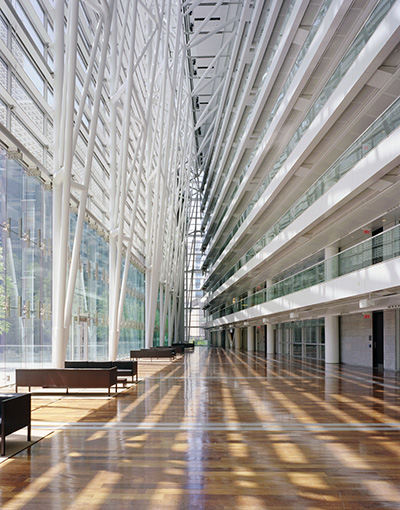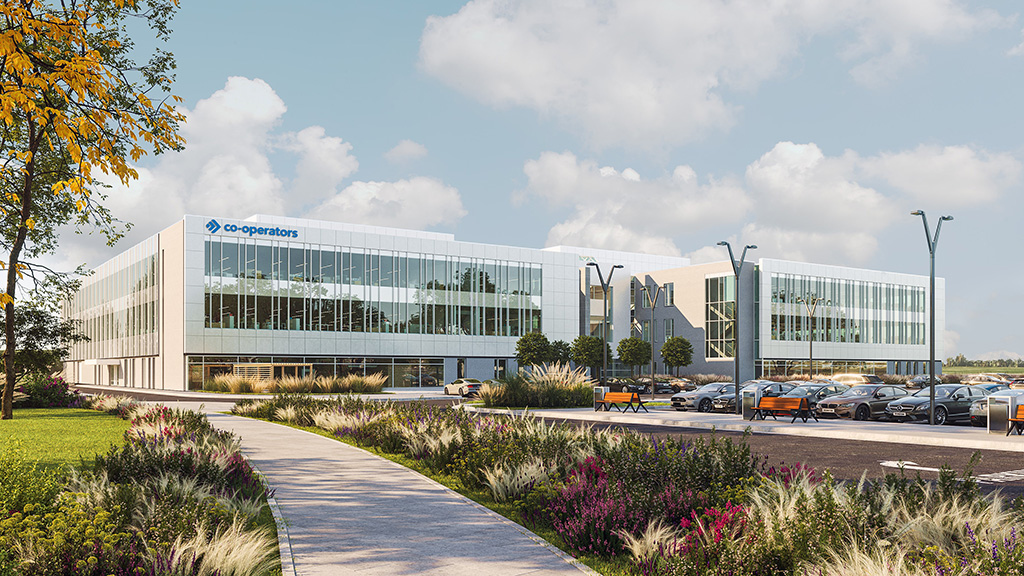The Canada Green Building Council (CAGBC) and partners have announced the launch of free low-carbon skills training for the Canadian construction sector.
The first of five profession-specific modules, the Low Carbon Education Training Workshop for Architecture Professionals, kicked off Oct. 3 as part of the Royal Architectural Institute of Canada’s 2023 Congress on Architecture.
The other partners are the Canadian Construction Association (CCA), the Climate Risk Institute, the Building Owners and Managers Association and the Real Property Association of Canada.
CAGBC CEO Thomas Mueller stated the Low Carbon Training Program is intended to benefit stakeholders working in architecture, engineering, construction and commercial real estate, including building owners and operators, to develop a better understanding of low-carbon strategies and solutions.
“What’s exciting about this initiative is that it’s a way to help stakeholders in the industry to have a common language around building green and sustainably,” said CCA president Mary Van Buren.
“We’re all going to have a shared curriculum.
“And then secondly, there’s a little bit more in-depth training for our members on the construction side.”
The program includes an overview Low Carbon Training Foundations Course with five modules offering all industries an introduction to low-carbon concepts. A Low Carbon Fundamentals Course for building owners and real estate workers across development, investment and asset management will run over three days, Nov. 7 to 9.
The course addresses GHG accounting, asset and portfolio level standards, targets, strategies, low-carbon technologies and transition plans, reporting and third-party verification.
The other three series are Pathway to Net Zero: Decarbonization for Building Operators, a course to be available online in January 2024; a Low Carbon Training Program for Construction Professionals, offered by the CCA and starting in November; and Low Carbon Training for Engineering Professionals, to launch this month.
The training is funded in part by the federal government.
Laurna Strikwerda, the CAGBC’s low carbon training project lead, explained at this stage the program is targeting leaders in the sector.

“It was really important for us to work with a cross-section of industry leaders who understand the day-to-day challenges of professionals to create a program that is accessible and can benefit anyone interested in staying ahead of the curve as the building sector transitions to a low-carbon future,” Strikwerda said.
Citing examples, she added, “There’s also an opportunity for building owners to have more of a deep dive into the specific issues that they need to understand related to low carbon building, or a construction professional can also have a deep dive into specific issues related to apartment building for construction.”
According to a study from the CAGBC and Delphi Group, current investments from government and industry will significantly expand Canada’s green building economy with projections of $150 billion in GDP and 1.5 million jobs by 2030.
But the study suggested the sector will need to upskill with low-carbon knowledge and training to keep up with the growing demand for low-carbon projects.
Strikwerda suggested Canada’s building sector has been slow to take up green building projects.
“Right now, at the rate we’re retrofitting buildings to be low carbon, it’s really only about one per cent a year,” she said. “So we need 142 years to retrofit all homes and 71 years to retrofit all commercial buildings.
“So we have to be able to pick up the pace.”
Strikwerda said the Low Carbon Training Program is aiming to reach 3,000 participants through to its conclusion at the end of March 2024.
It was important that the commercial real estate sector be included, she said, because there has to be a common approach and vocabulary between that sector and architects, engineers and constructors.
Van Buren said the partners intend for the new venture to be just the start of a long-term program.
“We don’t think this is going to be a one and done,” she said. “This is going to be a continual evolution of learning. We have to do some R and D, we’re going to find out what works better. I’m sure we’ll be learning from other countries as well that are all on the same journey.
“It’s a really exciting time and we see this as the beginning of more training to come.”
Follow the author on Twitter @DonWall_DCN



Recent Comments
comments for this post are closed